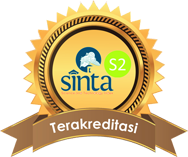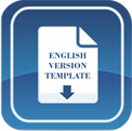Fostering Trustworthy (Amanah) Character: Investigating the Impact of Integrating Religious Values into Thermochemical Module
DOI:
https://doi.org/10.15575/jtk.v8i2.17566Keywords:
religious value, thermochemical module, trustworthyAbstract
References
Abidin, F. Z., & Khairudin. (2017). Penafsiran ayat-ayat amanah dalam al-quran. Jurnal Syahadah, 5(2), 120-144. https://doi.org/10.32520/syhd.188
Agung, I. M. (2021). Psikologi amanah: konsep, pengukuran, dan tantangan. Buletin Psikologi, 29(2), 187-203. https://doi.org/10.22146/buletinpsikologi.46193
Agung, I. M., & Husni, D. (2016). Pengukuran konsep amanah dalam pendekatan kualitatif dan kuantitatif. Jurnal Psikologi, 43(3), 194-206. https://doi.org/10.22146/jpsi.11233
Ali, H., Nurfazri, M., & Miftakh, F. (2022). The analysis of floating maxim on isran noor in mata najwa talks show. Jurnal Perspektif, 6(1), 13-24. http://dx.doi.org/10.15575/jp.v6i1.162
Davison, I., Harisson, T., Hayes, D., & Higgins, J. (2016). How to assess children’s virtue literacy: methodological lessons learnt from the knightly virtues programme. Journal of Belief & values, 37(1), 16-28. https://dx.doi.org/10.1080/13617672.2016.1141526
Erihadiana, M. (2019). The implementation of islamic local content in building character education at junior high shcool al amanah Bandung. Jurnal Pendidikan Islami. 4(2):41-50. https://doi.org/10.15575/jpi.v4i2.3812
Fatmah, N. (2018). Pembentukan karakter dalam pendidikan. Tribakti: Jurnal Pemikiran Keislaman. 29(2):369-387. https://doi.org/10.33367/tribakti.v29i2.602
Haryani, H., Supriatno., & Sulastri. (2021). Character values-loaded chemistry module development in redox reaction and compound nomenclature materials to improve learning outcome of high school students. Journal of Physics: Conference Series, 1-7. http://doi.org/10.1088/1742-6596/1806/1/012198
Hermawan, I., Ahmad, N., & Suhartini, A. (2020). Konsep amanah dalam perspektif pendidikan islam. Qalamuna-Jurnal Pendidikan, Sosial, dan Agama, 12(2), 141-152. http://doi.org/10.37680/qalamuna.v12i2.389
Irfan. (2019). [Interpretation of amanah verses in al-qur’an] Penafsiran ayat-ayat amanah dalam al-quran. Al-Taddabur: Jurnal Ilmu Alquran dan Tafsir, 4(2), 113-128. https://doi.org/10.30868/at.v4i02.571
Kasim, A. C., Dien, M. I., Kasim, S. C., & Manap, J. (2020). The impact amanah on individual manners and the society. International Journal of Academic Research in Business and Social Sciences. 10(9):630-640. http://dx.doi.org/10.6007/IJARBSS/v10-i9/7854
Mauliza, M., Nurhafidhah, N., & Hariadi, J. (2022). Needs analysis: development of character-integrated problemsolving model for chemistry lessons in senior high schools. Jurnal Penelitian Pendidikan IPA. 8(1), 336-340. https://doi.org/10.29303/jppipa.v8i1.1053
Muchtar, D., & Suryani, A. (2019). Pendidikan karakter menurut kemendikbud. Edumaspul: Jurnal Pendidikan, 3(2), 50-57. https://doi.org/10.33487/edumaspul.v3i2.142
Padmadewi, N. N., Artini, L. P., & Nitiasih, P. P. K. (2018). Techniques of building character and literacy for 21st century education. Proceedings of the 1st Internasional Conference on Education Innovation (ICEI 2017). 250-253. https://doi.org/10.2991/icei-17.2018.65
Panggabean, J. Z. Z. (2022). Reflecting the value of character education in lesson planning. Jurnal Ilmiah Sekolah Dasar, 6(1), 66-74. https://doi.org/10.23887/jisd.v6i1.41427
Permatasari, A. D., & Anwas, E. O. M. (2019). Character education analysis of the natural sciences textbook of 7th grade students. Jurnal Teknologi Pendidikan, 7(2), 156–169. https://doi.org/10.31800/jtp.kw.v7n2.p156--169
Rifa’i, M. K. (2016). Internalisasi nilai-nilai religius berbasis multicultural dalam membentuk insan kamil. Jurnal Pendidikan Agama Islam, 4(1), 119-133. https://doi.org/10.15642/jpai.2016.4.1.116-133
Saputro, A, N, C., Aznam, N., & Partana, C., F. (2022). Integration method of religious character values in chemistry learning. Jurnal Kimia dan Pendidikan Kimia. 7(1), 111-124. https://doi.org/10.20961/jkpk.v7i1.55601
Shidiq, N., Majid, A., Haryanto, S., Khoiri, A., & Sunarsi, D. (2019). Analysis of the national character value of Ahl Al Sunnah Wa AlJama’ah students at the LP Ma’arif PCNU Wonosobo, Central Java, Indonesia. Jurnal Teknologi Pendidikan, 21(1), 97-106. https://doi.org/10.21009/jtp.v21i1.20390
Sukestiyarno, Y. L., Cahyono, A. N., & Pradnya, I. N. (2019). Integrating character education in mathematics learning in Indonesia and Denmark. Journal of Physics: Conference Series. 1-6. https://doi.org/10.1088/1742-6596/1321/3/032014
Sulastri. (2018). Nilai karakter dalam pembelajaran kimia. Banda Aceh: Syiah Kuala University Press.
Sulastri, S., Rusman, R., & Arifa, A. (2018). Pengembangan soal-soal kimia bermuatan nilai-nilai untuk memperkokoh karakter siswa. Jurnal Tadris Kimiya, 3(2), 71-181. https://doi.org/10.15575/jtk.v3i2.3512
Surbakti, D. A., & Supartono. (2016). Pengembangan karakter siswa pada pembelajaran kimia berbasis teknologi informasi menggunakan metode diskusi. Jurnal Inovasi Pendidikan Kimia, 10(2), 1807-1816. https://doi.org/10.15294/jipk.v10i2.9534
Sutarjo, J. (2020). Manifestasi konsep (sunnatullah) dalam Pendidikan: suatu kajian teologis. Jurnal Ilmiah Pendidikan, 4(1), 91-104. https://doi.org/DOI.10.32332/tarbawiyah.v4i1.1754
Tekke, M., Watson, P. J., Kayadibi, S., & Chen, Z. J. (2018). Amanah and muslim identity: Relationships with religious and psychological adjustment in Malaysia. Journal of Religion and Health. 59, 891-904. https://doi.org/10.1007/s10943-018-0690-3
Downloads
Additional Files
Published
How to Cite
Issue
Section
Citation Check
License
Authors who publish with this journal agree to the following terms:
- Authors retain copyright and grant the journal right of first publication with the work simultaneously licensed under a Creative Commons Attribution-ShareAlike that allows others to share the work with an acknowledgement of the work's authorship and initial publication in this journal.
- Authors are able to enter into separate, additional contractual arrangements for the non-exclusive distribution of the journal's published version of the work (e.g., post it to an institutional repository or publish it in a book), with an acknowledgement of its initial publication in this journal.
- Authors are permitted and encouraged to post their work online (e.g., in institutional repositories or on their website) prior to and during the submission process, as it can lead to productive exchanges, as well as earlier and greater citation of published work (See The Effect of Open Access).








